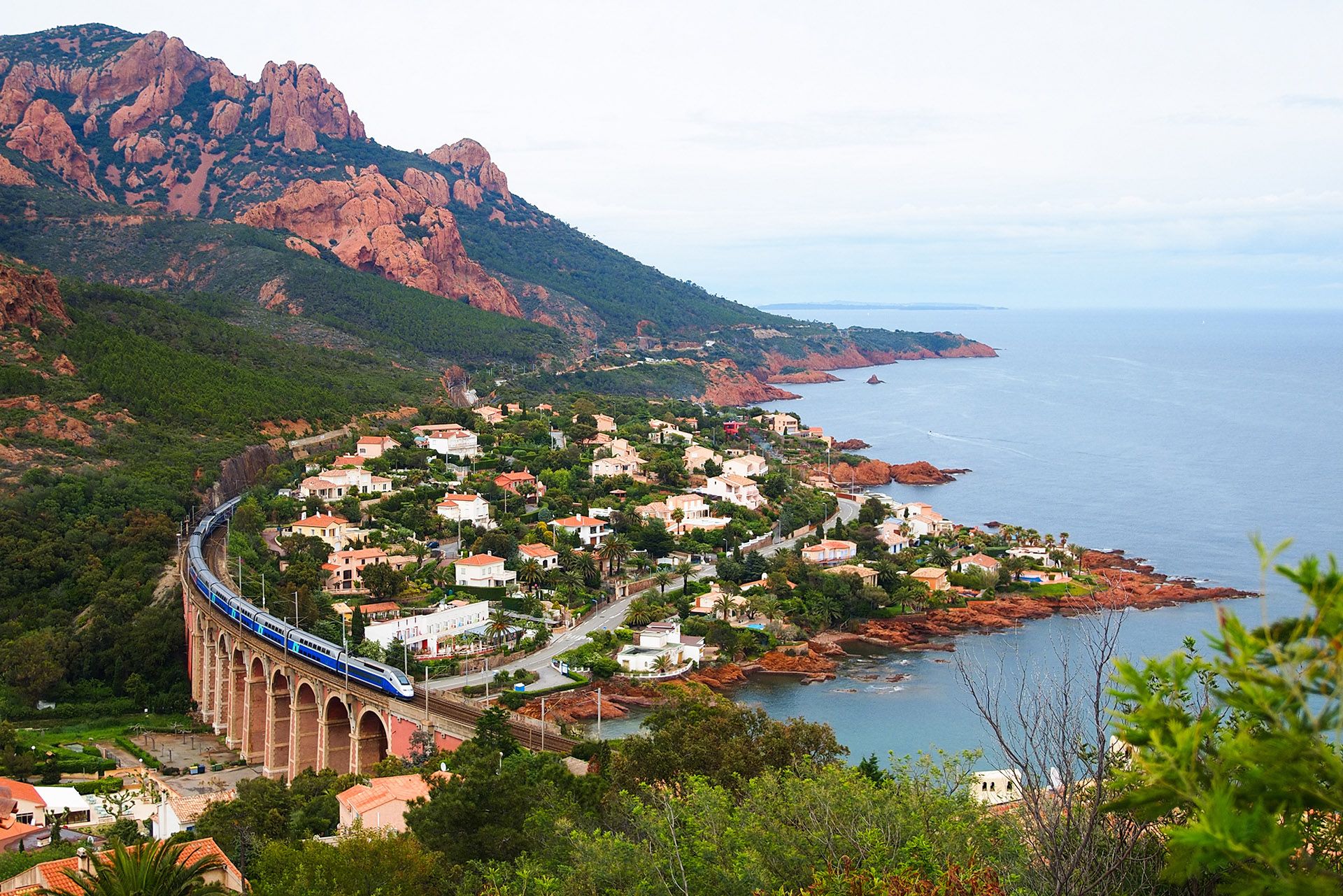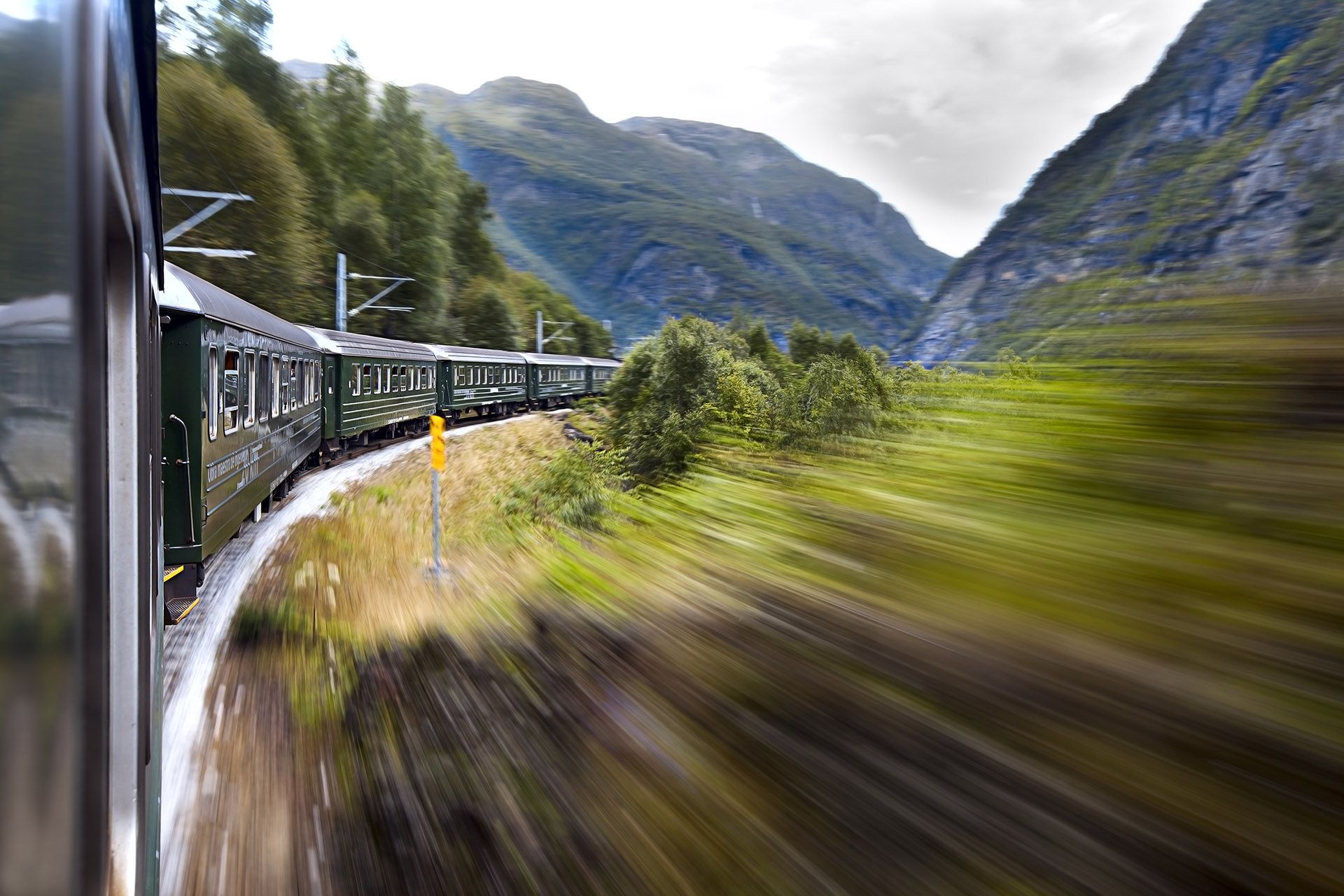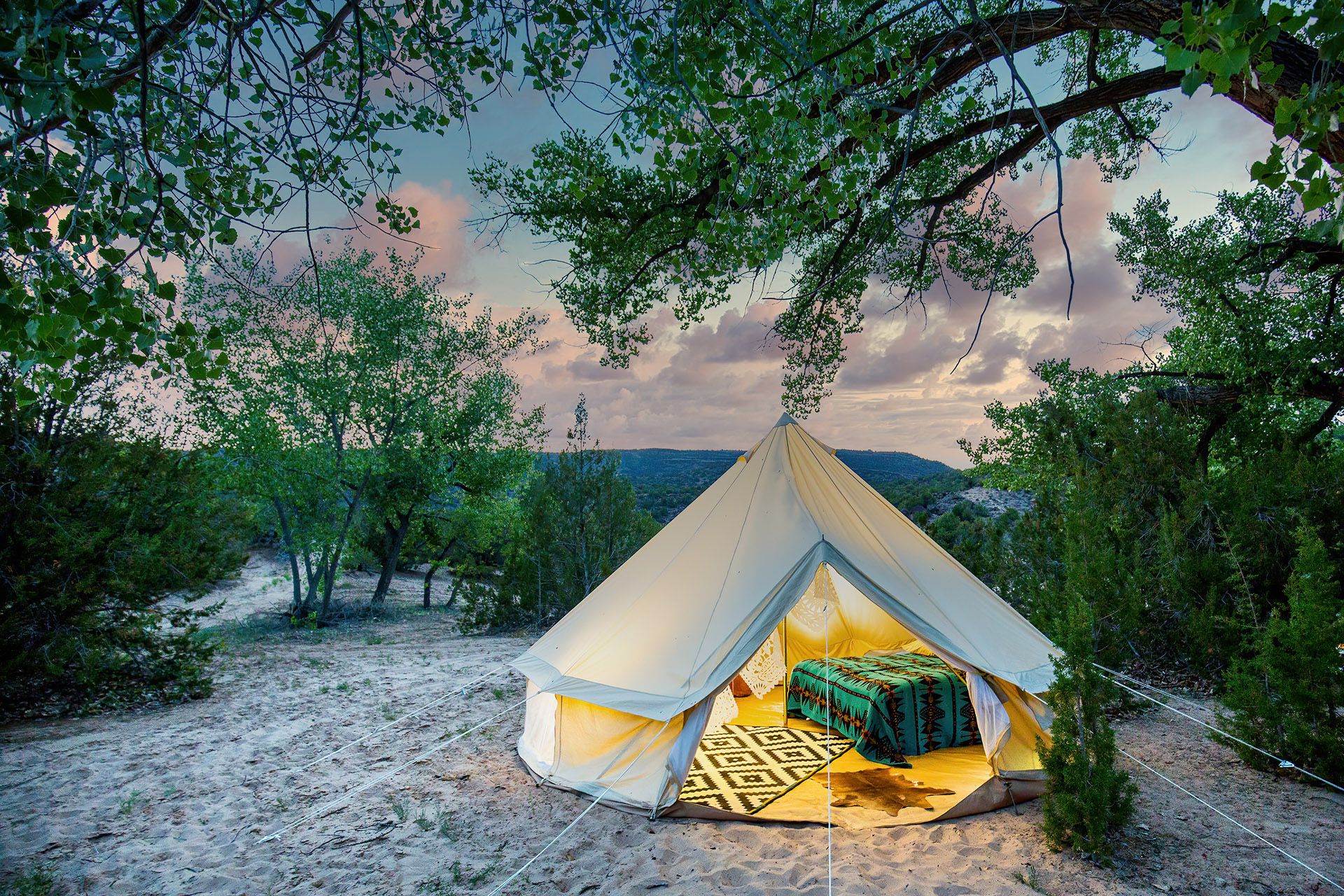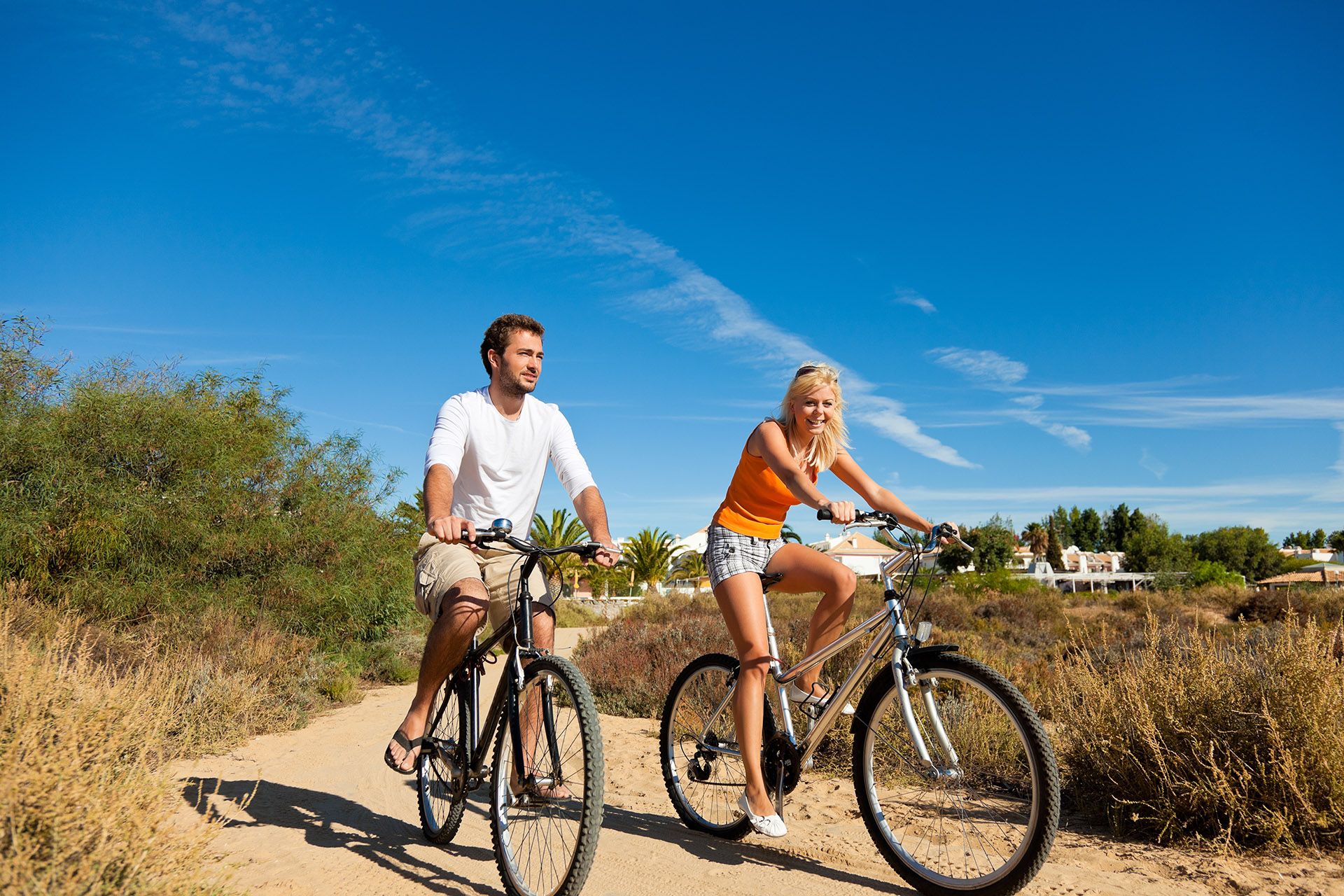- Responsible Travel
- Eco-Tourism
Planning your own trip? Prepare for your trip
Use Rough Guides' trusted partners for great rates
Plan and book your private, tailor-made tour with vetted local experts
The pandemic caused a seismic change in travel. Plus, with issues around climate change taking centre stage, concern about our impact on the environment and how to travel sustainably has grown. Going abroad is finally back on the cards, but have attitudes towards travel changed? To find out, we asked Rough Guides readers for your thoughts on sustainable travel.
Hundreds of readers responded to our survey and 96 percent agreed that sustainable travel is important. Interestingly, the results showed that it is as important to the over 60s as it is to young adults.
We can admire Greta Thunberg for sailing across the pond to New York. But most people aren’t likely to choose a two-week ferry crossing when they could be touching down on the runway in a matter of hours. Who’s got the time?

Flight departure board © Shutterstock
Generally, however, people are aware that greenhouse gases emitted through air travel are harmful to the environment. Thoughts around air travel and carbon offsetting (balancing your carbon footprint by putting money into environmental projects elsewhere) popped up repeatedly in the responses to our survey, with one person suggesting that “all tour operators/airlines must build in carbon pricing”, rather than leaving it to individuals.
There are many organisations now catering for carbon guilt with offsetting projects, such as the widely recognised Gold Standard.
Another respondent requested “information on the most sustainable airlines”. The existence of sites such as Glooby and the Atmosfair Airline Index, which compare the CO2 emissions of different airlines, suggest this is an important factor for many people intending to fly.
Just as hygge entered our lexicon and we imported Scandi ideas of cosiness (no doubt Ikea did a roaring trade in candles and sheepskin throws), the Swedes then gave us flygskam. Referring to the shame of flying, you may hear it mentioned in the same sentence as tagskyrt, meaning pride in travelling by train (or train bragging).
You might also have heard of flygfritt (flight-free), a movement which rejects air travel, gathering pace in Sweden even before the pandemic grounded flights. This inspired the UK version, Flight Free UK.
This growing interest in replacing flying with greener modes of transport is reflected in the results of our survey. 31 percent of respondents said they planned to take fewer flights, with one person saying they intend to “discover travel treasures closer to home”. And over 57 percent said they planned to travel responsibly, even if it inconveniences them.

Rail travel on the Mediterranean coastline of Fance © Enzojz/Shutterstock
57 percent of respondents will try to make more responsible travel decisions, even if it inconveniences them.
Eco-conscious Europeans are looking to train travel as an alternative to high carbon-emitting flights. Many European countries already have a well-developed electric rail network, such as Switzerland, with an all-electric fleet, and the Netherlands, where passenger trains run entirely on electricity generated by wind. Eurostar trains are also fully electric and aim to use only renewable energy sources by 2030.
Is a rail journey on your travel wish list? With Rough Guides Tailor-Made Trips, a local expert in your desired destination will be happy to look into the available train routes and help you plan your itinerary.

Picturesque train route in Norway © bezikus/Shutterstock
Throughout our survey results, we saw trains repeatedly specified as a desirable alternative means of travel. However, the high cost of rail travel was also mentioned, with one suggesting that a “higher tax on flights should be used to reduce rail travel prices.”
You might assume that cost would outweigh ethical concerns. But the fact that more people are swapping planes for trains, when flying is often cheaper, suggests otherwise. And the results of our survey seem to agree, as 42 percent said they would be willing to shell out an extra £100 to reduce their carbon footprint.
Ditching diesel or petrol and going electric might not yet be on your radar, but you’ve probably noticed chargepoints springing up all over the place, from motorway service stations to spots outside hotels, and maybe on the street where you live. If you’ve visited any National Trust properties, you may have noticed several have charging facilities.

Scenic routes in Europe by electric car © Matej Kastelic/Shutterstock
Our survey certainly highlighted an interest in trading fossil-fuel hungry vehicles for greener alternatives, with over 45percent saying they would buy or rent an electric car.
For the definitive guide to travelling Great Britain and Northern Ireland by electric car, check out The Rough Guide to Green Britain and Northern Ireland.
However, 28 percent expressed a flat-out no to the idea of an electric car, and around 26 percent were reticent. The main reservations were a perceived lack of chargepoints and fear of running out of charge when driving long distance. No one wants to get stuck on the hard shoulder of the motorway or at an off-grid country bolthole because of an empty battery.
In fact, many of the newer models can happily clock up 200 miles before needing to recharge. And the UK’s chargepoint network is one of the most extensive in Europe (see Zap Map), expanding by the day, with most service stations offering rapid chargepoints these days. Why not take a look at our two-week, eco-friendly UK road trip planner?
Other European countries are also expanding their network to keep pace with the trend. Switzerland even has a road trip designated for electric vehicle users. The E-Grand Tour of Switzerland is a 1600km route, with over 300 chargepoints, that takes in some of the country’s most stunning scenery and attractions.
Over the border in Germany, meanwhile, many Aldi supermarkets are installing fast solar-powered chargepoints for drivers to use for free.

Charging an electric car © husjur02/Shutterstock
As the move away from fossil fuels gathers momentum and going electric gains credence, the number of charging facilities will continue to increase. In turn, more people will take the plunge, until driving electric gradually becomes the norm. Let’s face it, this is only going one way.
The term “eco-friendly” pops up a lot in relation to places to stay. And just as climate issues aren’t likely to go away, greener stays isn't just a passing trend. Don't miss Rough Guides definitive guide to the best eco-friendly accommodation in the UK.
Throughout the UK, you'll find solar-heated hotels, B&B’s using locally sourced produce in an aim to reduce their carbon footprint, and self-catering cottages, such as offered by the National Trust, which ploughs profits into conservation projects.
Alongside eco luxury, such as provided by the Carbis Bay Hotel in Cornwall, there are campsites with compost toilets and glamping sites in the middle of rewilding initiatives, as well as places which contribute to local community and wildlife projects.

Luxury camping in a bell tent © PTZ Pictures/Shutterstock
Our survey results suggest a growing interest in greener stays, with over 60 percent of respondents saying they will consider eco-accommodation.
Is eco-friendly accommodation is important to you, either in the UK or overseas? When you book a Rough Guides Tailor-Made Trip, you'll be partnered with a local expert in your chosen destination, who'll help source sustainable accommodation that works for you.
Homestays (staying with locals while travelling), have gained in popularity – a move away from the impersonal and homogenous offerings of some hotel chains, and a chance to forge a more authentic connection with a place and its people.
This is mirrored in our survey, in which over 79 percent of respondents said they would consider alternatives to hotel chains, and ties in with the 52 percent who said they wish to support local, community-led and sustainable businesses.
Rough Guides Tailor-Made Trips are dedicated to supporting local businesses and sustainable tour operators. Whether you choose one of our ready-to-go tours, or decide to work with one of our local experts to create a completely bespoke trip, all of our Tailor-Made Trips put authenticity and community first.
Camping and glamping has never been more popular. Even before the pandemic, camping had gained a cool edge, with eco-sites and luxury yurts, on-site organic cafés and yoga sessions, becoming standard. But, with people unable to travel abroad over the last year and a half, along with not being able to gather indoors, camping has definitely been having a moment.

Combining camping with yoga © Denis Moskvinov/Shutterstock
With the sudden surge in newbie campers buying up tents and other must-have camping gadgets (everyone surely needs a collapsible colander), many retailers ran out of best-sellers before camping season even began.
It remains to be seen whether the trend will hold, or if all that nearly new equipment will turn up on eBay (or in landfill!). But over half of our respondents said they would be considering camping or glamping.
It appears the main barrier to altering our holiday habits is often not knowing how, with 29 percent of respondents saying there simply isn’t enough information out there. Many said that they wanted examples of those who had already taken steps to change, along with “more uplifting information” and more “fun!”.
Perhaps the perception generally is that a ‘sustainability’ tag carries a rather too wholesome weight, that it’s saddled with a perception of worthiness that doesn’t tally with people’s ideas of having a good time.
Rough Guides Tailor-Made Trips, however, is working to overturn that assumption, certainly when it comes to marrying activity and adventure with eco-tourism. When you book a Tailor-Made Trip, a local expert in your chosen destination will create an itinerary for you that includes all your desired activities, underpinned with a planet-friendly ethos.

Biking adventures on holiday © Kzenon/Shutterstock
Regarding the lack of information on sustainable travel, one of our respondents said that what’s needed is “a certification, like the Fair Trade/Organic/FSC/MSC labels, but for travel”. That would certainly separate genuinely eco-friendly businesses from the greenwashers (giving a false impression of eco business practices).
And with over 68 percent saying they would consider taking a certified sustainable holiday, this could be key to gaining travellers’ trust.

Fair Trade products © Visions-AD/Shutterstock
There are accreditation schemes already, such as Green Tourism and Green Key, which awards businesses demonstrating significant positive contribution to the environment. But these are not common knowledge in the same way that, say, Fair Trade, Organic, or MSC may be.
Also, with no consistent yardstick across the various schemes for measuring sustainability, such as how much energy or water is used, how much waste produced, or whether workers are treated ethically, it’s hard for travellers to make fully informed ethical travel choices.
When it comes to greener travel, many travellers still have questions that need to be answered. Yet, with the overwhelming majority (over 95 percent) of our respondents telling us that travelling sustainably is important to them, and booking services such as Rough Guides Tailor-Made Trips demonstrating a commitment to experiences that support local communities, sustainable travel looks set to take centre stage.
Top image: Picturesque train route in Norway © bezikus/Shutterstock
written by
Michelle Bhatia
updated 13.12.2023
Use Rough Guides' trusted partners for great rates
Arrange your trip, hassle-free, with local travel experts
Arrange your trip with local travel experts